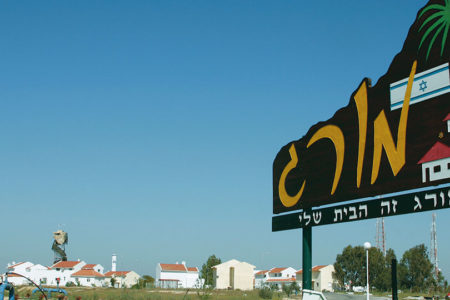Eye on the Middle East Jul/Aug 2015
“It’s the economy, stupid!” That was the phrase coined by James Carville, chief strategist for Bill Clinton’s 1992 presidential campaign, to help his team focus on the recession as a campaign tactic. As a result, U.S. President George H. W. Bush lost his bid for a second term.
Israeli political savants and media pundits adopted the phrase during Israel’s recent election. Yitzhak (Isaac) Herzog, leader of the Zionist Union party, focused his campaign on repairing the economy and fixing strained relationships with friends and neighbors. Herzog believed Israelis had “Bibi fatigue,” a glib phrase the news media coined to explain why Israeli Prime Minister Netanyahu was sure to lose.
All the final polls indicated Herzog’s tactic seemed to work. Then the election happened.
Instead of the Zionist Union party winning its projected six-seat advantage over Likud, Israelis gave Likud a six-seat advantage over Zionist Union. It was a blockbuster win. News outlets not even friendly to Israel’s right, such as the BBC, The Guardian, and The New York Times, declared, “Netanyahu’s Likud storms to victory,” “Netanyahu unexpected win,” and “Netanyahu emboldened with a clear mandate.” Even the Arab-language news network Al Jazeera called it a “surprise victory.”
What happened?
First, though Israel is not an economic utopia, it has a good economy. Admittedly, housing prices are extremely high, and there is strife between the government and labor unions. However, compared to the rest of the world, the Middle East in particular, Israel’s economy is fantastic.
Even The Forward, a left-leaning, American-Jewish newspaper, noted after the election,
Israelis are not in such bad shape. The economy weathered the global financial crisis with no burst housing bubble, no bailouts and barely a blip in its growth trajectory. Unemployment has fallen to record lows and the stock market is at a record high. Israel’s high tech industry is thriving.
Second, Israelis are, in fact, extremely security-conscious. Likud took only 30 seats in the Knesset, well below the 61 needed for a majority. But most Israelis leaned right. As a result, it was relatively easy for Netanyahu to put together a new coalition government.
The coalition is called “the 67 government,” a reference to its 67 Knesset members. Not only is this a solid majority, but it does not include the political left, something unprecedented. Israeli voters gave Netanyahu the ability to stand strong against “a nuclear Iran, a radicalized Middle East and, most of all, a biased world that is ready to throw Israel under a bus,” according to Shmuel Rosner of the Jewish Journal.
Most, if not all, members of “the 67 government” view the vision of a two-state solution to the Arab-Israeli conflict as an illusion, based on the decades of failure to implement it.
Third, though Israelis love and appreciate America like no other nation in the world, the vote clearly sent a message to the White House. It is no secret the Obama administration sent a campaign team to Israel with the specific purpose of dislodging Netanyahu. It wanted a new Israeli government willing to give away more land and make more concessions for peace, no matter how fragile. Instead, Likud’s solid victory and the 67 government make it difficult for Obama to implement his Middle East strategy.
Another outcome of the election is that Europe and the United States will likely criticize Israel’s government. Nothing new there.
Other voices will support it. They will come from people who understand Genesis 12:3: “I will bless those who bless you, and I will curse him who curses you.” They will come from those who understand that the freest Muslims in the Middle East are those who are Israeli citizens. And they will come from those who understand that a strong Israel is a blessing to the world.








